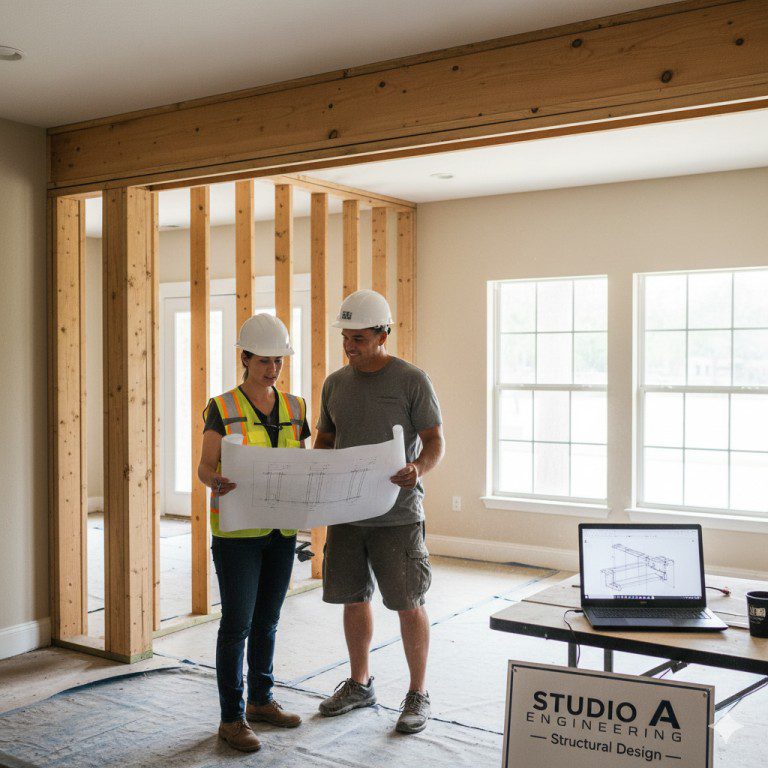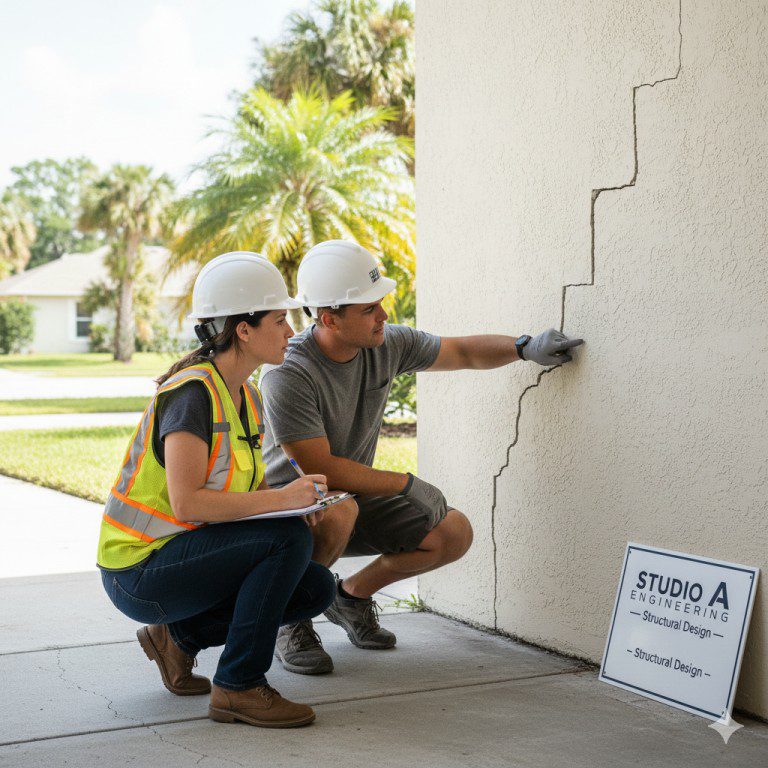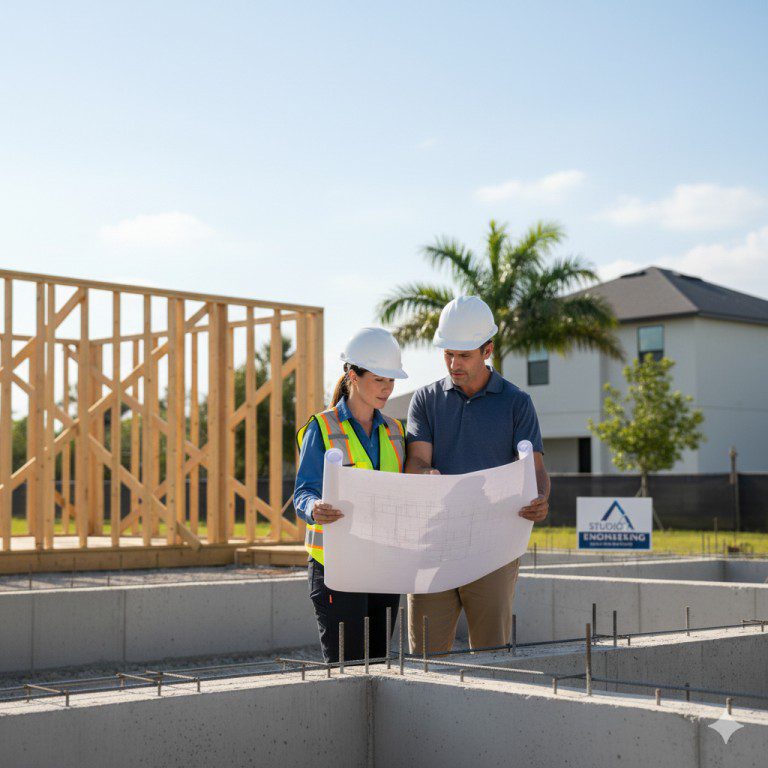Residential Structural Engineer: Top 5 Reasons to Hire One
A residential structural engineer is the most important partner you can have when ensuring the safety and longevity of your home. While contractors build the vision, the engineer ensures the “bones” of the house—the foundation, walls, and roof—can support it.
Many homeowners are unsure when to call an engineer versus a general contractor. This guide outlines the top five scenarios where hiring a licensed professional is not just recommended, but essential for your safety and wallet.
Table of Contents
When Do You Need a Residential Structural Engineer?
Unlike a general home inspector who looks at the surface, a residential structural engineer calculates the physics of your home. Here are the five most common reasons our clients call us.
1. Removing or Altering Walls
Open-concept living is popular in Florida, but you cannot simply knock down a wall. If that wall is load-bearing, removing it without proper support can cause your roof to sag or collapse. An engineer must calculate the load and design the beam required to replace the wall safely. You can learn more in our guide on removing load-bearing walls.


2. Foundation Cracks and Settlement
Florida’s soil can be tricky. If you notice stair-step cracks in your stucco, doors that stick, or uneven floors, you likely have a foundation issue. A contractor might try to sell you a quick patch, but an engineer will diagnose the root cause. For detailed signs, read our article on cracked foundation inspections.
3. Planning a Home Addition
Adding a second story or a new room requires a permit. To get that permit, you need a set of signed and sealed plans proving the new structure meets the Florida Building Code. An engineer ensures the existing foundation can handle the extra weight of the addition.

4. Storm and Water Damage
After a hurricane or severe storm, hidden structural damage can linger. If a tree hits your roof or you experience flooding, a residential structural engineer can assess the integrity of the trusses and walls to ensure the home is safe to inhabit.
5. Buying a New Home
During a real estate transaction, a general home inspector might flag a “potential structural issue.” This can stall a deal. Hiring an engineer to provide a definitive report gives you the leverage you need to negotiate repairs or the price.
The Value of a Signed & Sealed Report
One of the most critical deliverables you receive from a residential structural engineer is the signed and sealed report. In Florida, this seal is more than a formality; it is a legal certification that the design or inspection meets the rigorous standards of the state.
This document is required by building departments to issue permits for additions or repairs. It is also the gold standard for insurance companies when proving the safety of a home after a storm. Unlike a contractor’s quote, which is a sales document, an engineer’s report is an unbiased, technical document that holds weight in legal and financial transactions. It protects your liability and ensures that any work performed on your home is compliant and safe.
The Engineer vs. The Contractor
It is important to remember the difference: A contractor is hired to *build* the project. A residential structural engineer is hired to *design* it and ensure it won’t fail. The engineer works for you, providing an unbiased plan that any contractor can follow.
Get a Professional Assessment Today
Don’t guess when it comes to the structural integrity of your home. Whether you are renovating or repairing, our team is ready to help.
Contact us today to speak with a licensed engineer about your project.
